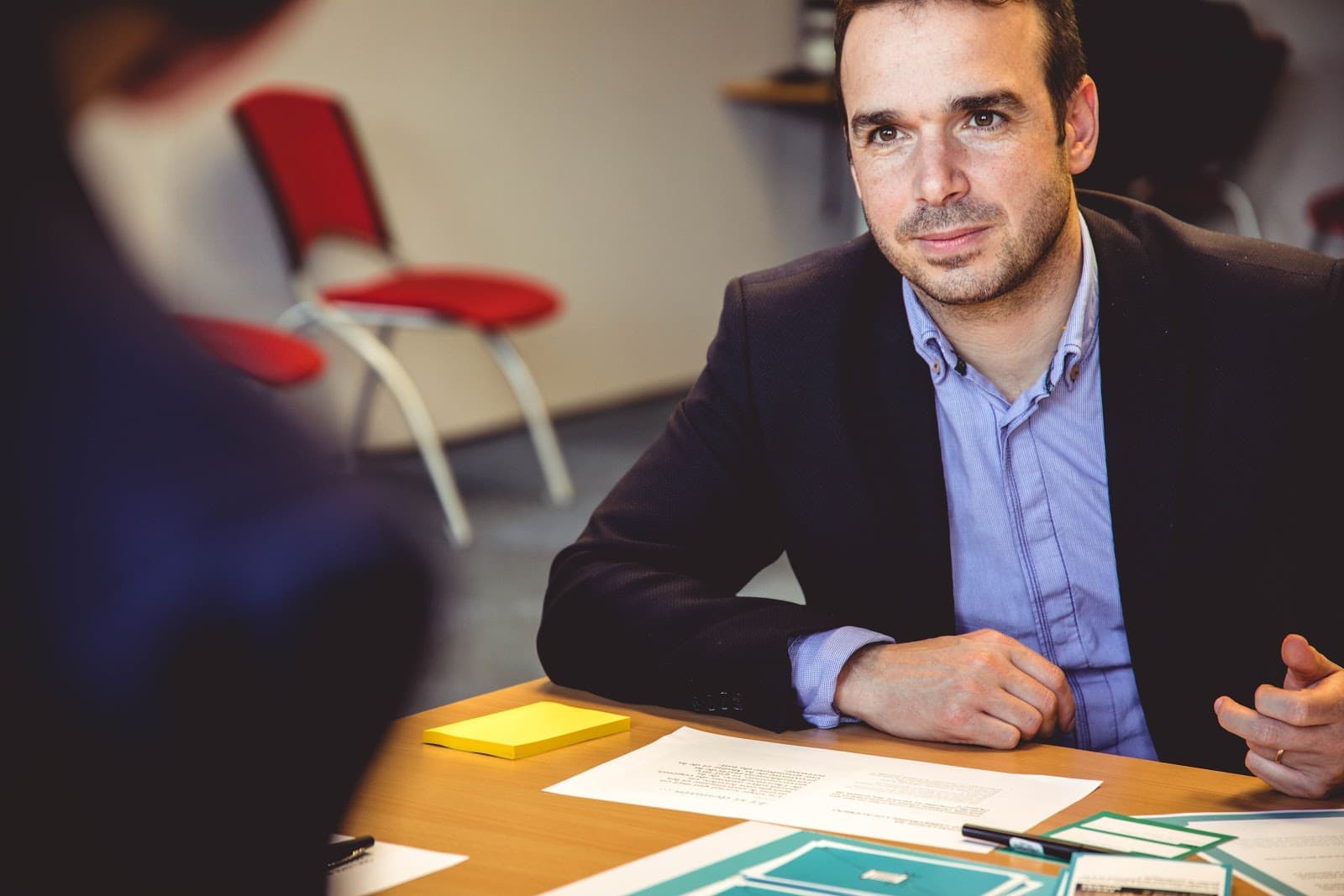
Situational Interview Questions

If your current interview process is not based around situational interview questions, it probably looks a little like this:
You meet your candidate, ask if they found the place ok, talk about their employment history and their skills, explain the available position a little more, then shake hands and ‘we’ll get back to you’.
If you thought that the above situation is all too common, you’re right – it is. Interviews like that offer no value to either party.
Vague questions warrant vague responses. The only thing you’re able to learn about your candidate is how quickly they can answer an unexpected question on their feet.
That’s where situational interview questions save the day. A well-crafted question about a specific hypothetical situation is a great way to see the way a candidate responds (or has responded) in certain situations. But remember, there’s more to conducting an effective interview than asking the right questions. It’s important, but there’s a lot more to it than that.
You can find more interview questions in our posts “45 behavioral questions to use during non-technical interview with developers,” “Phone interview questions: the complete list,” and “12 powerful second interview questions to ask your candidates.”
What are situational interview questions?
Situational interview questions are questions about how the candidate would handle a challenge they would face in the role.
Situational interview questions can help push candidates past generic answers by making them think about how they would handle a situation.
Why are situational interview questions so effective?
Simply put, they make the candidate drop their interview script and think on their feet.

Image source: Johanna Buguet on Unsplash
Situational interview questions are a great way of establishing how a candidate’s values and priorities might influence a future action at your company.
A good response to a question like this will do more than just show you how a candidate would behave. These answers show you how the candidate perceives the benefit or outcome to themselves and the business.
Situational questions as a part of your interview process
As an experienced HR recruiter, you know that there’s more to a recruitment strategy than just asking questions. But it’s important that you ask your situational questions at the right time.
If your company culture is all about sharing creativity, thoughts, feelings, and concepts no matter what, it’s important that you tell this to your candidate before you ask them their questions. This will help the candidate answer more truthfully because they now know what’s important in your business.
Similarly, if your business has a set structure, an almost production-line way of working, this should be told as early in the interview process as possible.
Traditionally, most candidates are given time to ask questions about the position or the company in an initial interview. Give them a dedicated time to ask questions, and encourage them to ask you similar situational questions. “What would it take for you to praise an entire department for going above and beyond?”
Sure, it’s rare that a candidate would ask you such a question, but your best answer should still respond to the question as if it were asked in such a way.
So what are the most useful situational questions to throw at a candidate?
12 Situational interview question examples
While there’s a ridiculous amount of information you can get out of a candidate in an interview, here are 12 examples of situational interview questions you must ask.
Situational Interview Question 1:
“What would you do…”
Why it’s a good question: This isn’t an actual question, but rather the go-to way to start a situational question. These 5 words can turn a simple yes or no question into a detail, intricate response. Try re-wording your favorite interview questions to start with this phrase. You’ll be able to see how candidates respond to the same question, just worded differently.
Situational Interview Question 2:
“How would you fix a mistake that you make in a project?”
Why it’s a good question: You’ve probably asked the ‘what are your weaknesses’ question in the past. This is similar to that question, reworded to elicit a more detailed and situation-specific response. By explaining how they would fix a mistake or problem that they’d encountered their answer will show self-awareness, emotional intelligence while also building a picture of the candidate’s weaknesses.
Situational Interview Question 3:
“How would you motivate someone or others around you.”
Why it’s a good question: Whether the position you’re hiring for requires leadership or not, showing initiative and being able to motivate co-workers is a good skill to have in a person. Furthermore, the word ‘motivation’ is very subjective. Does your candidate consider motivation and inspiring a team to look at a project differently, or banding together to begrudgingly see a tough job through to the end? This is the question that will find that out.
Image source: You X Ventures on Unsplash
Situational Interview Question 4:
“Imagine you found yourself in a situation where you couldn’t achieve your goals. What would you do?”
Why it’s a good question: This question is a fantastic way to see the extent to which a candidate applies themselves to the task at hand. Furthermore, it also shows the level of ownership of those goals your candidate has. The extra ‘what’ and ‘why’ questions warrant an even more detailed response. This can be a good indication of how a candidate perceives a failure, and how they responded to not meeting those goals.
Situational Interview Question 5:
“Describe how you would prioritize, organize and track your work”
Why it’s a good question: Regardless of the way you prioritize tasks to be done within a team, an individual’s self-organizational skills are important. Asking a candidate to speak about the way that they would prioritize their own tasks shows their attention to detail. This is a good question because, until now, your candidate may not have seen these small, simple skills and a system unto its own. In essence, this question hows organizational skills and attention to detail.
Situational Interview Question 6:
“Describe a situation where you would be proud of your work”
Why it’s a good question: This is the opposite of the question ‘what are your weaknesses’. It can be a flattering question and give the candidate the opportunity to speak about what they take pride in. It’s a great 2nd or 3rd question to ask, especially if your candidate is feeling nervous or tongue-tied about the interview.
Situational Interview Question 7:
“Tell me about how you would navigate a situation where you had multiple projects with conflicting deadlines or goals”
Why it’s a good question: This is another question that gives you insights on time management, prioritization of tasks, and the ability to think independently and on their feet. The answer to this question says more about the candidate’s ability to complete everything in front of them, rather than handle multiple tasks simultaneously.
Image credit: Charles on Unsplash
Situational Interview Question 8:
“What would you do if you had a disagreement or conflict with a co-worker and what would your role be in resolving it?”
Why it’s a good question: In a company that values growth and harmony, individuals who can manage personal conflicts and defuse tense situations are crucial to maintaining a quality workplace. This question will give you an idea of the candidate’s diplomacy skills as well as how they see themselves in conflicts.
Situational Interview Question 9:
“What would you do if you felt nervous, stressed or unconfident?”
Why it’s a good question: Having a person think about a time they aren’t at their best can show you how seriously they take themselves. This question also can show you how the individual problem-solves in a stressful situation and is another good indicator of emotional awareness. This question can also have the added effect of making your candidate feel more comfortable. If you’re asking someone to talk about their mistakes, you’re reminding them that it’s OK to not be perfect.
Situational Interview Question 10:
“How would you handle [this situation that regularly happens in your workplace?”
Why it’s a good question: Asking questions that are specifically about your workplace means that the candidate can’t use a generic response. They’ll need to think on their toes about how to handle the said situation in your workplace. Keep in mind though that while the candidate’s response might not be the correct way to handle that situation in your company, the response can still shed a lot of light into the candidate’s thought process.
Situational Interview Question 11:
“What would you do if you had to work for your least favorite boss or manager, and why?”
Why it’s a good question: This question is great at catching your candidate off guard, as it’s not a question you’d expect to be asked in an interview. It’s something that you’d probably discuss with trusted colleagues after work – and that’s what makes it a good situational interview question.
Situational Interview Question 12:
“How would you adjust to big changes in your workplace?”
Why it’s a good question: This situational interview question is great if you’re a startup that regularly experiences changes in structure, or the product changes a lot. Adaptability is an important trait to have in an employee, as it shows their willingness to work for a company, rather than a specific project or job.
Image credit: Romain V on Unsplash
How to create your own situational interview questions
Creating your own situational interview questions isn’t overly hard. More often than not, it’s easy to take a yes or no question and turn it into a situational question that needs a more detailed response.
Instead of asking:
Do you build relationships easy?
Try asking:
What, in your opinion, is needed to build a strong relationship with your coworkers?
Most questions that start with these words can be answered with a simple yes or no. Instead, try and work yourself into the question, as if to coerce a detailed response out of your candidate.
Rather than ‘Do you consider yourself creative?’, try “Tell me about how you would create a policy, initiative or solution to a problem that would be implemented by your team’.
This question is quite specific, but the fact that its open-ended means that your candidate can craft a response that can raise even more questions you’d like to ask. This, in turn, creates an opportunity for you to gauge your candidate a little better and ultimately make a better final decision
Conclusion
The motivators and morals of a candidate play a huge role in how well they fit the position advertised, so you need to be sure you know what drives your candidate.
Situational interview questions are the key to that. Adopt the above questions into your interview process, and even start creating your own. You’ll soon find it quicker and easier to maximize the efficiency of each interview and get a clearer insight into your candidate’s responses to situations.
For more proven examples of good questions to ask in an interview, check out our The definitive book of developer interview questions for savvy recruiters.
Image source: LinkedIn Sales Navigator on Unsplash







